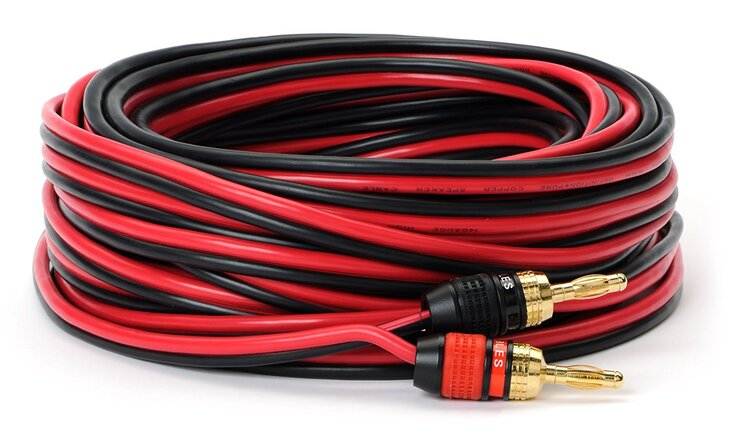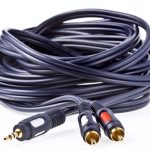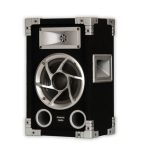You might assume that you can buy any speaker wire and enjoy the best sound output. However, that’s not the case. There’s so much you need to know about speaker wire. Essentially, the role of a speaker wire is to connect a receiver to a speaker or an amplifier to a speaker. A speaker wire works by carrying an audio signal in the form of an electric current from a sound source to a speaker.
When buying speaker wire, you need to consider the gauge of the speaker wire. Speaker wire gauge refers to the thickness of a speaker wire. Basically, a higher speaker wire gauge value represents a thinner speaker wire. AWG, which means American Wire Gauge, is the standard used in denoting the thickness of a speaker wire.
Although there’re numerous AWG sizes, the most common sizes are 12 AWG, 14 AWG, and 16 AWG. These sizes are most ideal for use in most stereo and home theater sound systems. Let’s discuss 14 vs 16 gauge speaker wire in detail to assist you in learning whether they differ and the best gauge to choose between the two.
14 AWG vs 16 AWG Speaker Wire
Essentially, 14 AWG speaker wire is a little thicker than 16 AWG. A standard 14 gauge speaker wire features a diameter of 1.6 mm whereas a standard 16 gauge speaker wire features a diameter of 1.3 mm.
Generally, a thicker speaker wire has lower resistance. Thus, a 14 gauge speaker wire has less resistance than a 16 gauge speaker wire. By keeping the resistance low, the audio signal passing through the speaker wire won’t get degraded. Basically, it’s easier for an electric signal to flow through a wider speaker wire. If the speaker wire is narrower, the signal will find it harder to flow through the wire. This means that thinner wires create more resistance for audio signals to conquer. If there’s high resistance, the quality of audio signals will deteriorate.
Consequently, if you want to run a long cable to connect a speaker to a sound source that is far away, consider using thicker wire to reduce resistance. If you want to connect a speaker to a nearby sound source, then a thinner speaker wire will do a perfect job.
Which is better between 14 vs 16 gauge speaker wire?
You may be confused about the speaker wire gauge to use for your sound system. The best option between 14 gauge and 16 gauge speaker wire depends on various factors including:
- The impedance rating of the speaker
- The distance between the speaker and sound source
Generally, most speakers have an impedance rating of 4, 6, and 8 ohms. In this case, a 14 gauge speaker wire should be used to connect a 4-ohm speaker within a distance of up to 40 feet whereas a 16 gauge speaker wire should be used to connect a 4-ohm speaker within a distance of up to 24 feet.
To add to that, a 14 gauge speaker wire should be used to connect a 6-ohm speaker within a distance of up to 60 feet whereas a 16 gauge speaker wire should be used to connect to a 6-ohm speaker within a distance of up to 36 feet.
Also, a 14 gauge speaker wire should be used to connect an 8-ohm speaker within a distance of up to 80 feet whereas a 16 gauge speaker wire should be used to connect an 8-ohm speaker within a distance of up to 48 feet.
If you exceed the recommended distance for a specific speaker wire gauge and the corresponding speaker impedance rating, you’ll get reduced sound fidelity.
Final Thoughts
As you can see, the right speaker wire between 14 and 16 gauge will largely depend on the impedance of the speaker and the distance you want to run the speaker wire. If you’re an audiophile who values high sound quality, the gauge of a speaker wire is a factor you shouldn’t ignore. Although 16-gauge speaker wire is generally cheaper than 14-gauge speaker wire due to being thinner, as an audiophile, you shouldn’t compromise cost over the sound quality.
Michael Evanchuk is a San Francisco-based sound engineer with 20 years’ experience installing, troubleshooting, and repairing commercial, automotive, and household sound equipment. Evanchuk owns an auto stereo center, where he offers highly competitive car audio installation and repair services. He has written dozens of articles on different sound engineering topics, all of which have been published in leading journals, blogs, and websites.





